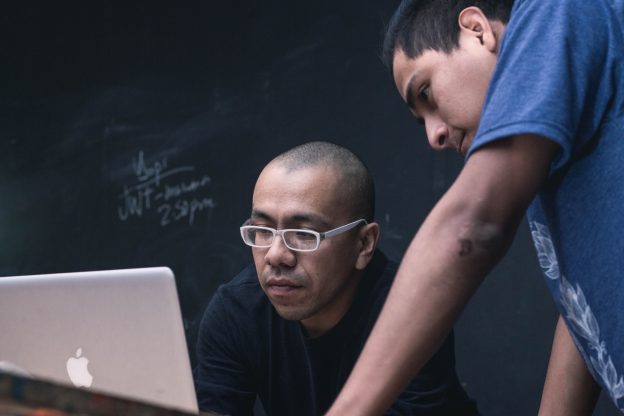The Wipro Teacher Fellow and Teacher Mentor Programme is an evidence-based, individualised programme of professional learning designed to improve primary and secondary teachers’ confidence, motivation and capability in one or more of the STEM subjects.
The programme is funded by Wipro Limited, a leading global information technology, consulting and business process services company. Wipro has large educational funding programmes in India and the USA. Wipro Limited is now also supporting STEM education in the UK, by funding the Wipro STEM Teacher Fellows and Teacher Mentor programmes in South Yorkshire, the only area of the country in which this programme runs.
Over 18-24 months, Teacher Fellows develop their knowledge and skills in teaching the STEM subjects through workshops and inquiry. They are supported throughout by Wipro Teacher Mentors (expert, experienced teachers and subject leaders from local schools), who are also supported through their own bespoke programme of professional development.
Throughout the programme, we have been collecting data to understand how teachers are benefiting from the programme and what we can do better as the programme continues.
The blog post below, which describes some of our findings, was recently published on the Wipro Teacher Fellows programme website.
Evaluating the Wipro programme
Alongside delivering the Wipro programme for Teacher Fellows and mentors, we are carrying out an internal, formative evaluation. This plays a key part in our quality assurance of the programme, by helping us to understand participants’ experiences and perceptions, what they learn and enjoy and what we can do better. In summer 2019 we carried out interviews with ten mentors and twelve Teacher Fellows. In this post, we briefly describe some of our learning from this evaluation.
Learning together: the many positives
The feedback from Mentors and Teacher Fellows is very positive about the programme, with both groups saying that it is the best professional development they have ever experienced. Participants enjoy the Wipro sessions taking place out of school, and regard this time away from the classroom as a really important part of the programme, where they can discuss their ideas in a supportive environment, speak to other teachers and build networks across other participants and their schools.
The Teacher Fellows programme contains different strands of learning which are intended to complement each other. The Teacher Fellows are overwhelmingly positive about their experiences, finding the sessions to be useful across several aspects of their practice and professional development. They were particularly inspired by the Evidence-informed approaches to learning programme strand, enjoying the practical nature of the sessions, and that strategies and approaches discussed were immediately useful in the classroom, for example:
- learning about metacognition;
- changing approaches to formative assessment and feedback, differentiation and scaffolding;
- workload management;
- trying/adapting different approaches;
- enhancing group work and engagement.
While some Teacher Fellows noted that the programme pushed them out of their comfort zone, this challenge was recognised as a positive thing and we have found that the programme increases Teacher Fellows’ confidence in their practice.
For the mentors, we blended face-to-face sessions at the university with online webinars, taking place in the evenings, and with completion of online workbooks. The webinars are a helpful complement to the face-to-face, giving mentors a chance to keep in touch with the group and continue to build relationships together, including learning from our colleague Professor Arthur Eisenkraft, who leads an equivalent set of Wipro teacher programmes in the United States. It is increasingly clear that this network-building is a strong aspect of the programme, which supports and adds to opportunities to improve mentoring practice.
Areas we can improve
Although participants’ experiences of the programme are overwhelmingly positive, our evaluation helps us to make ongoing improvements. For example, in the Teacher Fellows programme, we should improve:
- clarity around the second strand of the programme, in which Teacher Fellows are supported to carry out a small-scale inquiry into their practice;
- linkages between this inquiry project and the other parts of the programme.
For the mentors, we need to think about:
- clarity around our expectations of the mentors in their completion of the programme and their work supporting the Teacher Fellows;
- how to support mentors in sharing their commitment to, and learning from, the programme with their schools.
Many Teacher Fellows and Mentors have built positive relationships, including mutual visits between schools. However, for some, the pairing has been less successful, with a lack of time, communication and sometimes a little confusion over the role of the mentor, limiting the potential for positive impact. We need to ensure that we provide better support here.
Looking ahead
We aim to provide professional development which makes a real difference to teachers’ professional lives. As we move into the new academic year, we are making changes to the programme to respond to participants’ feedback. We are grateful for how our Teacher Fellows and mentors have committed to the programme, including sharing their experiences with us, and we look forward to continuing to work with them as we move into this new school year.
Written by:
Professor Emily Perry is Head of Knowledge Exchange and Deputy head of the Centre for Development and Research in Education at the Sheffield Institute of Education
Josephine Booth is a Senior Research Fellow.
Lucy Clague is a Research Fellow in the SIoE’s Centre for Development and Research in Education.

Leave a Reply